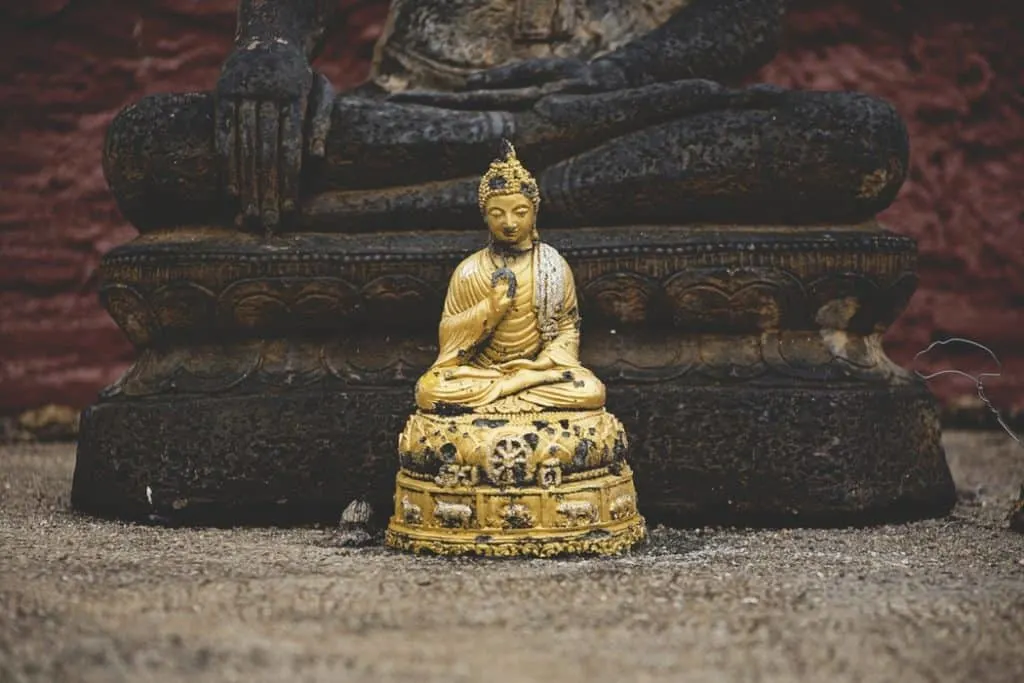- Eight Sleep Vs. BedJet Compared (Spoiler Alert: There IS No Comparison) - June 25, 2025
- The Top Brooklinen Alternatives I Love - June 20, 2025
- Best Down Alternative Duvet Inserts - June 20, 2025
A common tactic of parents trying to get their baby or young child to fall asleep is to sing or hum them a lullaby. Some cribs and bassinets even have soft music players built into them, in an effort to help a baby or toddler fall asleep and stay asleep. It turns out that lullabies and music are useful tools for adults as well as infants.
Music is packed with emotion and this is often why people resonate so strongly with their favorite tunes. There is music that captures every human emotion, from nostalgia to anger.
Studies have found that certain types of calming, relaxing music can actually be used therapeutically by those suffering from insomnia, poor sleep, and anyone that just needs a little extra help falling asleep after a rough day.

Americans as a whole simply aren’t getting enough sleep and poor sleep quality is linked to a plethora of issues, including chronic stress, physical and mental fatigue, and even illness caused by a depressed immune system.
Though clinic insomnia and other serious sleep disorders certainly aren’t the easiest to treat, doctors and sleep researchers have found that listening to the right music can have a profound effect over time.
It isn’t quite clear just how certain types of music make people feel sleepy, but there are plenty of promising theories. Some believe listening to calming music associated with childhood memories creates a cozy nostalgia that invites relaxation and sleep.
Others believe that music meditation, or the act of purposefully relaxing while listening to music, can train your brain. By putting on music that already has traditional relaxing effects and listening to it nightly, you can begin to train yourself to associate the music with bedtime, allowing you to start falling asleep easier.
While there is plenty of speculation out there as to just how music can help with sleep quality, there is no argument that, for whatever reason, it works for many individuals. Music doesn’t just check out as being mentally calming, but even physically calming. Listening to songs with slow rhythms can actually slow heart rate and breathing to a lowered level, often achieved when music has a pace of about 60 to 80 BPM.
The trick to getting the positive sleep effects of music is finding the right music to listen to. Music tastes are a very individual preference, and what works well to lull you to sleep may keep someone else awake. That being said, on average there are specific genres of music that work best for sleep.
If you want to fall asleep faster and experience better quality sleep, here are the five best sleep music genres to listen to.
Classical Music

Classic music, whether a beautiful symphony or an instrumental film score, is one of the first types of sleep music to come to mind. Classic music has been shown to have a positive effect on other activities, such as studying and test-taking. Many also find that classical music is particularly relaxing for sleep as well. However, the trick to make classical work is to find the right type of music.
Some classical is quite intense, loud, and energizing. Clearly, this will not be the type you would want to listen to when trying to fall asleep. Search for classical music that is slow, quiet, and melodic in nature. Something even slightly cheerful might work as some might find somber songs to be a little over-emotional. Essentially you will want to choose pieces that are calming, quiet, and with a fairly balanced rhythm. Ideally, it will only be instrumental, with few or no vocals included.
Ambient Music
Ambient music is sometimes referred to as “chill out” music, and for good reason. Sometimes issues associated with falling asleep are due to the person focusing too much on the quietness of the room, leaving them feeling uneasy or even anxious. White noise machines or leaving a fan on are common for this type of person, but an even better effect can be had from playing ambient music.
Ambient is a type of music characterized by tone and atmosphere rather than your typical musical structure. It has a gentle effect, often repetitive and flowing. Ambient rarely has vocals, but it may include effects like nature sounds (more on that below).
Ambient music can often be compared to the music used in films to create an atmosphere and feeling for the viewer. That being said, similar to classical music, ambient music can be quite dramatic, intense, and perhaps even nerve-racking. Be sure you only pick ambient music designed specifically for either sleep, relaxation or meditation.

Nature Sounds
If you’re the type of person that loves opening up the windows in summer and listen to crickets, then nature sound music is going to be right up your alley. Many people find that certain natural sounds have an incredibly powerful, peaceful effect and work better than actual music (i.e. classical). You can find nature sound songs with a focus on one specific sound and some that include a melody of natural sounds combined.
The most common nature sounds used for sleep include crickets, birds, wind, water, and a blend of these (i.e. tropical location combining insect buzzing, birds calling, and a waterfall). Slow-moving water, such as the sound of waves gently lapping along a shore, are particularly relaxing for many as the rhythm in the water is adopted by the person listening. Rain is another sleepy trigger for many.
You can find nature soundtracks easily on many music platforms. Some tracks may combine nature sounds with ambient or meditation music as well.
Meditation Music
A go-to type of music for those struggling to fall asleep is meditation music or guided sleep meditation. Meditation music often combines the best of ambient music and nature sounds, along with some type of gently guided sleep instruction. However, if you are not a fan of guided meditation, simply opt for meditation music without it.
Guided sleep meditation can work wonders for many, with the most successful tracks being those that incorporate the power of music to help achieve a better effect. YouTube is filled with a variety of different types of sleep guided meditation tracks complete with any number of music you can want accompanying it. If you find that it’s hard for you to mentally relax and stop toxic thoughts, meditation music tracks with guided instruction might be just the thing to put you out.

Binaural Beats
Though it may be last on the list, binaural beats may actually be the most interesting choice of sleep music. Binaural beats aren’t yet that well-known, but a Google or YouTube search will yield plenty of samples to listen to. Binaural beats are very similar to meditation and ambient music, but with a twist.
As mentioned before, the rhythm of music and the beat of it has a profound effect on relaxation as well as physical calmness (i.e. lowering heart rate and slowing breathing). Researchers found that drum beats of certain paces induced a somewhat trance-like effect for some.
Even in ancient cultures, tribes used certain drumbeat rhythms to achieve this. In modern use, binaural beats create this same steady beat rhythm, combined with other music to help the listener achieve some desired effect. Artists create these binaural beat tracks for everything from promoting positive thought to reducing stress and naturally it is specially designed sleep binaural beats that are most effective. You may want to try this unique type of music if you’re having trouble with more traditional methods.
When you’re experimenting with sleep and music, remember that there is no magical song that is going to lull you into an immediate slumber. Your best plan of attack is to choose a genre or mix of genres featured above that resonates most with you.
Begin listening to these tracks at bedtime, perhaps making a playlist that plays the same songs in order every night. This repetition can make it easier for some to fall asleep. Similar to a guided meditation, making it a habit to wind down, play music, and lay back in bed to relax can really become effective after just a few weeks.

